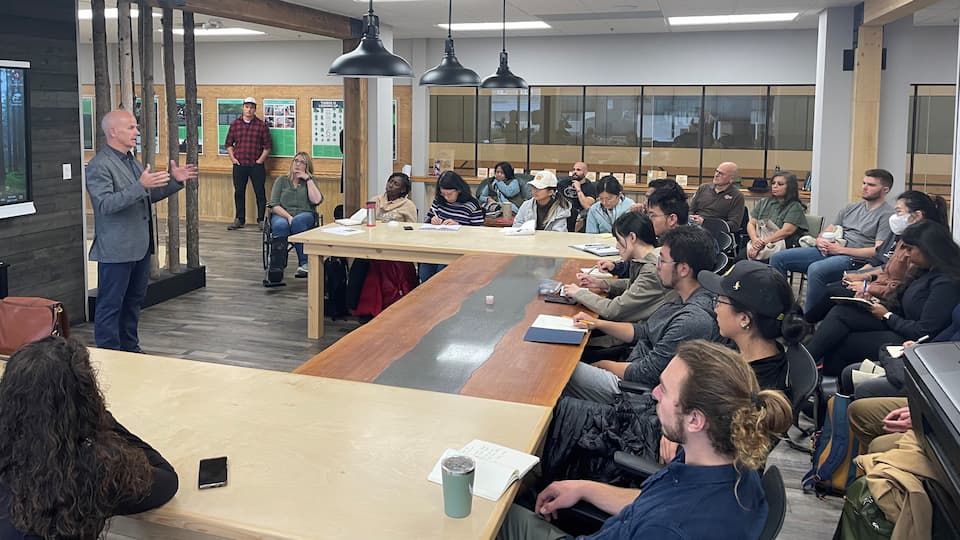
In partnership with the City of Quesnel and their Forestry Initiatives Program, UBC Forestry hosted its third Master of International Forestry Field School. This year, 16 students and their professors spent two days in Quesnel speaking to land managers, small businesses, government reps from the local First Nations, the municipality, the provincial government, and industry experts.
“The field school gives students the opportunity to learn about the relationships between people and forests and how these influence economic development and ecological sustainability,” explains MIF program coordinator James Langston. “The group of students we had with us this time are from so many different parts of the world including the UK, China, India, Indonesia, Cameroon and El Salvador.”
Langston explains further the group’s collective research interests lie in strengthening their local economies while also ensuring a healthy relationship with the land.
“We have become particularly passionate about fostering innovation through small and medium forest enterprises; and exploring how inclusive decision-making between First Nation and non-First Nation peoples results in better land use practices.”
Please visit the Forestry website to read the full story.
Through Strategy 16: Public Relevance, UBC is working to align our efforts more closely with priority issues in British Columbia and beyond, through dialogue and knowledge exchange.